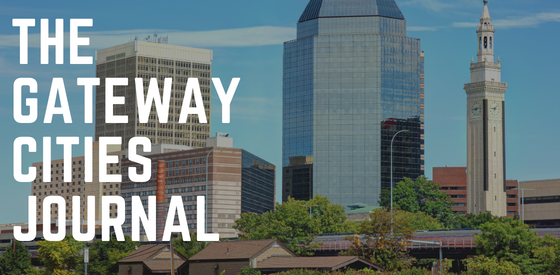There’s a lot to like in Governor Healey’s economic development bill. The wide-ranging law includes several smart provisions on issues that matter to Gateway Cities, most notably, small business and inclusive entrepreneurship. But there are also some missing components, and big existential questions about our Commonwealth’s priorities and needs that merit reflection, as the bill moves through the legislature.
What we like
We’re particularly excited to see the Governor’s leadership on vexing public procurement issues that hold back Gateway City agencies and their small businesses. Following recommendations from a 2023 MassINC/MACP report, the bill proposes statutory changes to give housing authorities a streamlined procurement process to purchase broadband infrastructure and services. This will put local housing authorities in a much better position to close the digital divide with federal infrastructure funds.
The bill also creates a pilot program to increase the diversity of businesses bidding on public construction contracts, along with an accompanying executive order to create a council to review the barriers that state procurement law presents for small and diverse businesses. (MassINC’s 2022 report with Lawyers for Civil Rights offers the council a head start. It surfaces many areas of state law inhibiting municipal supplier diversity efforts.)
Last but not least, the bill authorizes $35 million for state grants to Community Development Financial Institutions. Federal supports during the pandemic gave many Massachusetts residents capital to launch small businesses. Small business starts increased, especially among people of color. These funds would help sustain this promising trend.
What’s missing
Notably absent are provisions to build vibrant commercial areas, such as those included in the Downtown Vitality Act. This is a key legislative priority for Gateway City leaders. While the administration has committed to giving projects in state-designated Cultural Districts additional consideration for Community One Stop funding, Gateway Cities are eager for resources to support activities district-wide, as opposed to individual projects.
The bill also lacks statutory provisions from the Gateway Cities Caucus’ Act to Relative to Public Procurement and Inclusive Entrepreneurship that require state agencies to report on the share of economic development incentives awarded to designated minority- and women-owned business enterprises. But the good news is the administration has repeated a pledge from its economic development plan to track and report these key metrics. This is a promising start. (And a stronger legal framework is still a possibility, as the Gateway Cities caucus bill was reported out favorably by committee this week).
Areas for further reflection
The administration proposes an overhaul of the state’s Economic Development Incentive Program (EDIP), rightly noting that the tool as currently structured is largely ineffective. However, these resources have been targeted to Gateway Cities. If the changes redirect resources from our regional urban centers, this will not be beneficial. We’ll need to digest these provisions together with Gateway City economic development experts.
In the meantime, we urge leaders to take this moment to give deeper thought to the Commonwealth’s overall economic development strategy. Economic development bills will always be a vehicle to serve many interests, but state-led economic development efforts are most successful when they marshal investment in targeted areas and industries.
What is our focus at this moment in time? There isn’t a strong rationale for stimulating growth in sectors that are heavily concentrated in Boston, where housing and labor are exceptionally scarce. We need a more disciplined strategy when areas of the state like the Pioneer Valley have such acute needs. As a new MassINC report points out, Massachusetts has long overlooked the region and its many economic assets. Correcting course will require a commitment to large and sustained economic investments in the region. We cannot make these if we spread resources thinly throughout the state.
In Other News
Housing & Economic Development
- Attleboro takes part in municipal digital equity planning.
- Governor Healey’s $2.8 billion economic development bill includes Springfield HUB.
- Chronicle features the world of possibilities in New Bedford’s old mills.
- Springfield small business owners are pushing office employees to come back downtown, saying remote work is cutting into their sales.
- Jon Chesto draws attention to overlooked economic opportunities in the Pioneer Valley in this week’s Talking Points column.
Education
- UMass plans to expand early college programs for high schoolers across the state.
- A bill that would introduce a modified lottery system for admitting students to vocational high school, in place of the selective criteria the schools currently use, is advancing in the Legislature.
- Inflation is eating into the funding increases for school districts that were approved in a 2018 update to the state’s school aid formula, raising the prospect of budget cuts or local tax override votes to fill the gap.
- A proposed budget could cause Pittsfield Public Schools to lose 100 staff positions and even an elementary school.
- Research from the Worcester Municipal Research Bureau exposes the challenges and inequities that urban districts in Massachusetts face buildings and modernizing their public schools.
- A new report from the Hildreth Institute sheds light on significant inequities in the proposed tuition-free community college initiative in Massachusetts.
Transportation
- Springfield’s parking authority, which operates five garages, has lost half of its revenue compared to five years ago as the MGM casino’s free garage and the demolition of the parking structure at the MassMutual Center are biting into revenues.
- Worcester’s e-bike program expands to 10 more communities.
- MassDOT’s proposed New Bedford-Fair Haven bridge replacement isn’t tall enough.
Climate
Massachusetts Climate Chief Melissa Hoffer is on a mission to get all government agencies in the state to tackle climate change.
The Gateway Cities Innovation Institute strengthens connections across communities and helps Gateway City leaders advance a shared policy agenda. Click here to sign up for the biweekly Gateway Cities Journal to receive updates on current policy issues impacting Gateway Cities across the state.
